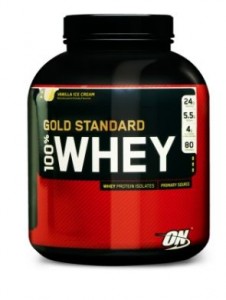 I cringed at the headline, “Soy is Making Kids Gay“. Weâve blamed homosexuality on just about everything, so I guess it was only a matter of time before plants took some of the heat.
I cringed at the headline, “Soy is Making Kids Gay“. Weâve blamed homosexuality on just about everything, so I guess it was only a matter of time before plants took some of the heat.
Jim Rutz, the author of said article, isnât a dietician, nutritionist or even a personal trainer. Heâs a minister, and yet doesnât hesitate to pen articles about a subject on which heâs uniquely unqualified to speak. Rutz writes:
Thereâs a slow poison out there thatâs severely damaging our children and threatening to tear apart our culture… When you eat or drink a lot of soy stuff, youâre also getting substantial quantities of estrogens… Soy is feminizing, and commonly leads to a decrease in the size of the penis, sexual confusion and homosexuality.
Before you start slipping soy to unsuspecting attractive straight guys, know that Rutz is a bit misguided. And by a bit misguided, I mean totally wrong.
First things first, soy doesnât contain estrogen, the female sex hormone. This isnât a theory or a speculation, but an actual fact. Soy does contain phytoestrogens, and though some properties are similar to estrogen, itâs a very different cup of tea. In actual human testing involving actual scientifically validated studies, the preponderance of evidence (including a meta-analysis or recent research in Fertility and Sterility) shows that soy neither lowers testosterone nor raises estrogen levels. Nine separate studies confirmed this.
Since the claim that soy foods result in feminized characteristics are based on the the mistaken belief that these foods contain estrogen (or even something similar), the misconception quickly falls apart in the light of real science.
As a side note, soy has no effect on sperm count, as is often rumored:
Three clinical studies have examined the effects of either soyfoods or isoflavone (the type of phytoestrogen of which soy contains high levels) supplements on sperm and semen parameters and none have found any adverse effects
If you read between the lines, it seems like Rutz is painting a picture of homosexuality as something that can be controlled. Like blood pressure and obesity. WTF?
Moreover, if soy makes you gay, itâs amazing that Japanese people (with high soy diets) have managed to reproduce for all these centuries. And somehow, despite not eating soy until age 21, I managed to become a full fledged homosexual.
The reality is that soy provides a number of benefits for men. These benefits including prostate cancer risk and blood cholesterol level reductions. Soy is also a great source of protein. Of course, it doesnât mean you need to drink 6 cups of soy milk a day - as your mother said, everything in moderation. ð
P.S. Though Mr. Rutz doesnât provide us with any actual science to support his article, Iâve included 16 references to support mine:
- Khosla S, Melton LJ, 3rd, Atkinson EJ, OâFallon WM, Klee GG, Riggs BL: Relationship of serum sex steroid levels and bone turnover markers with bone mineral density in men and women: a key role for bioavailable estrogen. J Clin Endocrinol Metab 83, 2266-74 (1998).
- Greendale GA, Edelstein S, Barrett-Connor E: Endogenous sex steroids and bone mineral density in older women and men: the Rancho Bernardo Study. J Bone Miner Res 12, 1833-43 (1997).
- Sayed Y, Taxel P: The use of estrogen therapy in men. Curr Opin Pharmacol 3, 650-4 (2003).
- Franke AA, Custer LJ, Wang W, Shi CY: HPLC analysis of isoflavonoids and other phenolic agents from foods and from human fluids. Proc Soc Exp Biol Med 217, 263-73 (1998).
- Pinkerton JV, Goldstein SR: Endometrial safety: a key hurdle for selective estrogen receptor modulators in development. Menopause (2010).
- Hamilton-Reeves JM, Vazquez G, Duval SJ, Phipps WR, Kurzer MS, Messina MJ: Clinical studies show no effects of soy protein or isoflavones on reproductive hormones in men: results of a meta-analysis. Fertil Steril (2009).
- Messina M: Soybean isoflavone exposure does not have feminizing effects on men: A critical examination of the clinical evidence. Fertility Sterility (in press) (2010).
- Chavarro JE, Toth TL, Sadio SM, Hauser R: Soy food and isoflavone intake in relation to semen quality parameters among men from an infertility clinic. Hum Reprod 23, 2584-90 (2008).
- Mitchell JH, Cawood E, Kinniburgh D, Provan A, Collins AR, Irvine DS: Effect of a phytoestrogen food supplement on reproductive health in normal males. Clin Sci (Lond) 100, 613-8 (2001).
- Beaton LK, McVeigh BL, Dillingham BL, Lampe JW, Duncan AM: Soy protein isolates of varying isoflavone content do not adversely affect semen quality in healthy young men. Fertil Steril (2009).
- Messina M, Watanabe S, Setchell KD: Report on the 8th International Symposium on the Role of Soy in Health Promotion and Chronic Disease Prevention and Treatment. J Nutr 139, 796S-802S (2009).
- Casini ML, Gerli S, Unfer V: An infertile couple suffering from oligospermia by partial sperm maturation arrest: can phytoestrogens play a therapeutic role? A case report study. Gynecol Endocrinol 22, 399-401 (2006).
- Yan L, Spitznagel EL: Soy consumption and prostate cancer risk in men: a revisit of a meta-analysis. Am J Clin Nutr 89, 1155-63 (2009).
- Lakshman M, Xu L, Ananthanarayanan V, Cooper J, Takimoto CH, Helenowski I, et al.: Dietary genistein inhibits metastasis of human prostate cancer in mice. Cancer Res 68, 2024-32 (2008).
- Xu L, Ding Y, Catalona WJ, Yang XJ, Anderson WF, Jovanovic B, et al.: MEK4 function, genistein treatment, and invasion of human prostate cancer cells. J Natl Cancer Inst 101, 1141-55 (2009).
- Zhan S, Ho SC: Meta-analysis of the effects of soy protein containing isoflavones on the lipid profile. Am J Clin Nutr 81, 397-408 (2005).







 Hereâs the BV of some common food items:
Hereâs the BV of some common food items:
